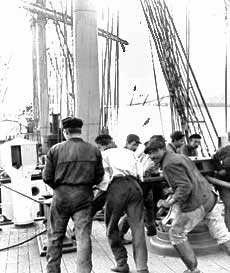Who Were the Real Capitalists? Nick D.
Nick Dobbe
Working the Waters
“Fur Traders and Natives”
Why were the Native Americans so receptive to the Hudson Bay Company’s Expeditions? Was it just a peak in interest for the pale men moving northward, or was it a want to acquire more ‘prestige goods’? The traders that accompanied the McDonald party struggled with the native population because they had fixed prices for their trade items that they would not stray from. This aggravated the ‘King George men’ because they were the capitalists, and the reason that they had come was to exploit the ‘Indian’s’ ability to kill and collect furs.
The first striking example that comes to mind is the incident with Babyar. In this specific incidence, “Tolmie refused to pay more than the standard rate for his best beaver. Babyar threw his blankets over the counter and rushed into the back room to repossess the skins he had already traded…” (p.28) this man, Babyar certainly knew the ropes of trading. This action did not fetch him the price he wanted for the pelt, but it reinforced the notion that the Europeans were the ones in complete control of the situation. There was another account of a man who wished to trade his pelts for one specific type of blanket that the expedition had none of, once informed of the lack of his desired item, he declared that he had no problem waiting rather than accepting something which he didn’t need.
In many ways, the Native American population was actually in control of not only the fur trade with the HBC forts, but really in control of their fates as well. Alexandra Harmon makes it crystal clear that even when the British attacked the settlement at Dungeness, they were of the impression that they had displayed their military might and this would scare the natives into submission. What is so interesting is what she leads this into, “…First, the confrontation they witnessed (Dungeness) did not pit natives as a group against united Britons…Second, McLoughlin’s interpretation rested on the erroneous assumption that Indians shared or understood his conception of power.” (p.22)
So I ask you who the capitalists were. Some would answer with a , why that’s easy, the British of course, but if you really look at the reading that we have been presented with, the Native Americans had better barter skills, they knew what they intended to trade things for, and they were in control of vast amounts of resources. I would almost be inclined to say that the Natives were taking advantage of the HBC men.

